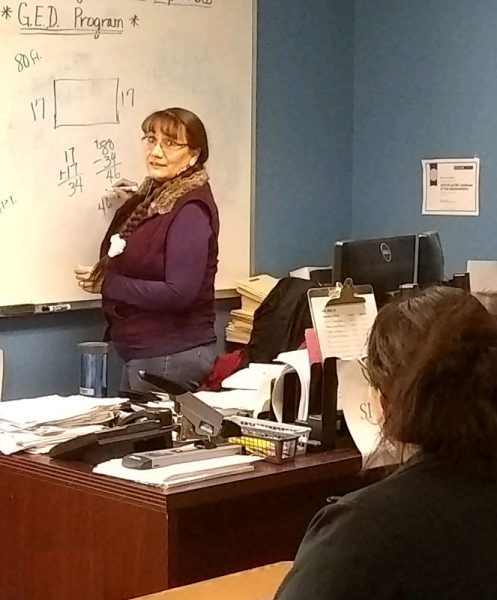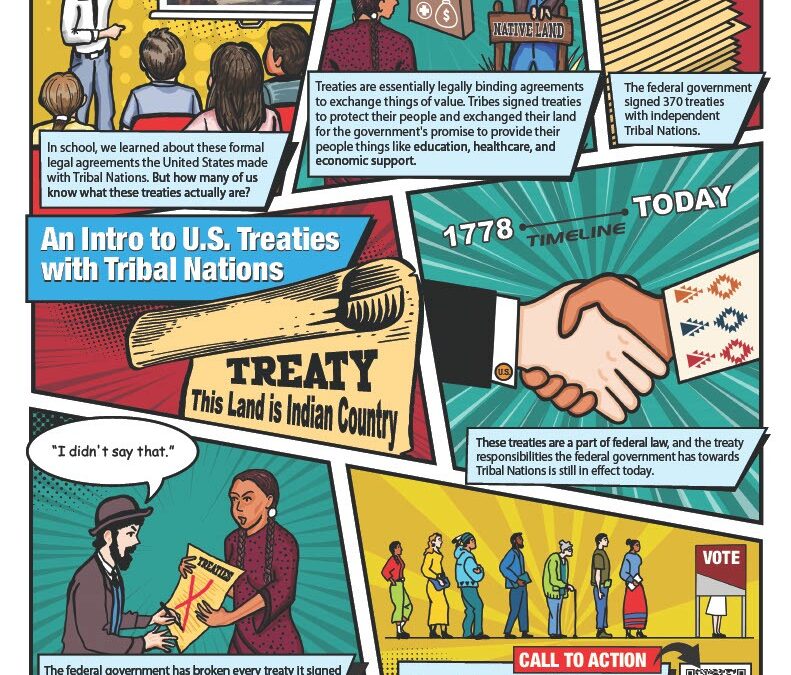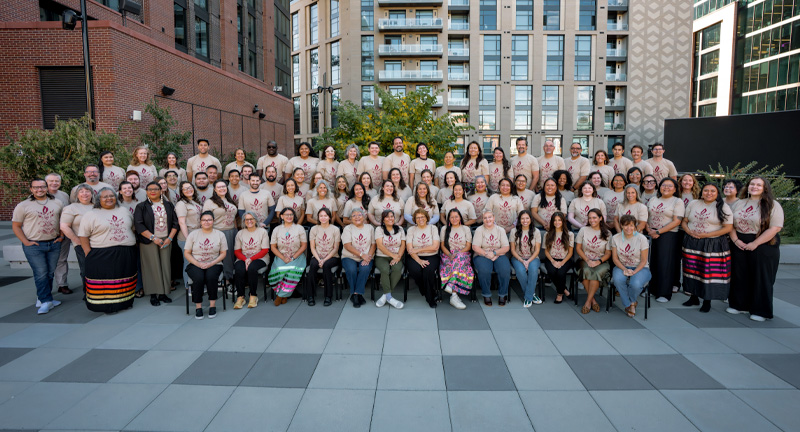By Rhea E. LeCompte, B.S.M., Cheyenne River College Center – Oglala Lakota College
Rhea E. LeCompte, Lakota name He’SkaWin (she comes from the white mountains), has seen many changes in OLC’s ABE/GED program since she started her work as a counselor/GED tutor at Oglala Lakota College’s (OLC) Cheyenne River College Center last September.
The program started using new software for the Tests of Adult Basic Education (TABE) in November 2019. Piya Wiconi, the main campus in Kyle, South Dakota held TABE training for all college centers in late October. The first center to implement and use the new TABE software was the Cheyenne River College Center (CRCC) in Eagle Butte, South Dakota. The CRCC’s Counselor/GED tutor, Rhea E. LeCompte, researched all the downloadable guides on the Data Recognition Corporation (DRC) Insight website, then started “hands on” training by creating a dummy profile. LeCompte began using the software the first week of December with GED students.
LeCompte says learning to use the electronic TABE was not difficult, but required a lot of reading. The challenge was taking the test itself as the dummy profile!
There are advantages and disadvantages to the electronic TABE versus the old paper test. One advantage is that the electronic TABE is scored automatically, with a 10-minute wait period after the Locator is completed to obtain results showing which test to administer for each portion of the TABE.
Another advantage is that it’s easier to administer, with the exception of the breakdown of the diagnostic profile for each student. This is more of a challenge with the electronic version and requires more self-study and training to extract the required materials needed for study and grade level, which is garnered through the National Reporting System (NRS) scores generated after the electronic TABE is completed.
LeCompte believes it is much easier to match the paper test with the diagnostic profile, which shows a more approximate grade level and material needed to study towards GED test completion. However, overall, the electronic TABE cuts time in half and allows the tutor to assist more students simultaneously. The largest advantage is there is less human error in scoring.
While navigating these transitions and changes in OLC’s testing methods, LeCompte continues to succeed in her work. Within the first few months of LeCompte’s employment, there was a marked increase in GED enrollment and by May 2019, there were five GED graduates at CRCC. Currently, CRCC has added five more GED graduates as of January 15 for a total of 10 GED graduates since LeCompte began working at CRCC.
LeCompte credits the success of OLC’s CRCC GED program to remaining positive about each student’s learning and remembering that each student learns in a different way. She believes that modeling patience, providing daily positive feedback, and encouraging each student in his/her progress is also paramount to the increase in GED graduates. She also incorporates her motto, to treat others as you’d like to be treated and to strive for success in all areas of life, in her work with program participants.
LeCompte also recognizes that opportunities for learning and obtaining the GED are made possible through the Dollar General grant which covers the cost of student gas vouchers, GED practice test fees, and the GED official test fees. She believes this funding is well spent, and the results can be seen in the increase in overall attendance and the numbers of graduates thus far at OLC’s CRCC GED program.









